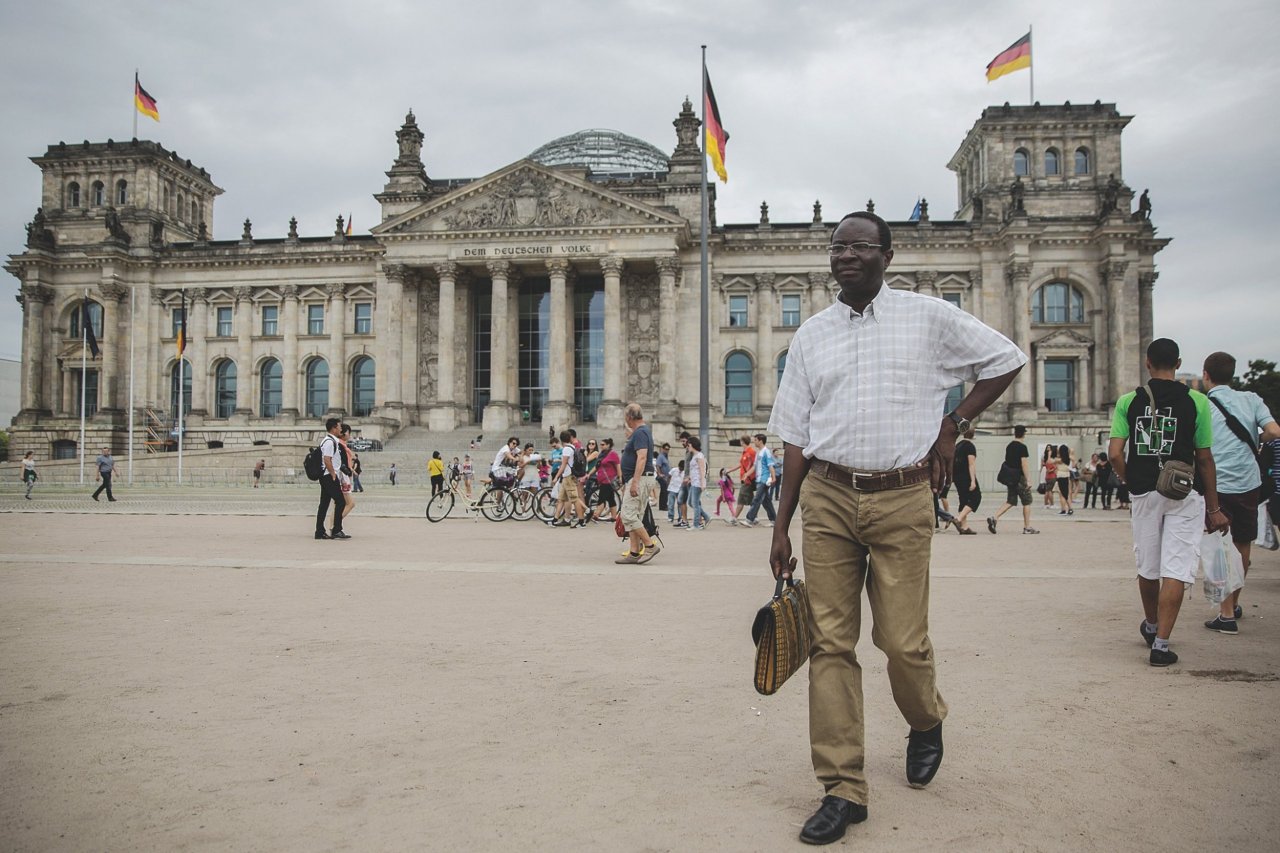Karamba Diaby, a 51-year-old chemist from eastern Germany, was surprised by all the attention. Campaigning for a seat in the Bundestag, the lower house of Parliament, Diaby drew first national, then international headlines. The reason for all the fuss? The fact that Diaby is black, and that, when he won the race, he made history by becoming one of Germany's first black parliamentarians. (Another politician, Charles Huber, whose father is Senegalese and whose mother is German, won a seat for the conservative Christian Democrats.)
Diaby, a Social Democrat, never wanted that kind of attention. "I want them to recognize me for being good, not for the color of my skin," Diaby says. Or as the Boulevard Baden newspaper put it: "Karamba Diaby doesn't want to be exotic." He may not be exotic, but he is rare. About 10 percent of Germany's population is foreign-born, but only a handful of politicians hail from outside the country.
"I think the [hype] has to do with the fact that the public has realized what a deficit we have in terms of political participation of people with immigrant backgrounds in Germany," Diaby tells Newsweek. "When you go to France, England, Poland, Canada, you see an Indian man with a turban who's a doctor, or a customs officer who is black, or a teacher wearing a headscarf. But we are still discussing all this in Germany like it's the Middle Ages—when it comes to this type of inclusiveness in politics, we're still a developing country."
Born in Marsassoum, a small farming town in southern Senegal, Diaby started early, getting involved in politics during his high school years. After attending the University of Dakar, he received a grant to study in what was then East Germany and decided to stay on after his studies were completed. In 1986 Diaby moved to Halle, a quaint medieval city, where he has been an active part of local politics for more than 20 years. He found his way into the hearts of Halle residents in the early 1990s, when he stepped in to stop investors from bulldozing private garden plots—which are beloved in Germany—to make way for commercial property. In 2009 he ran for city council and won.
Not long after, he was making campaign appearances with the top echelons of the SPD, including the party's chancellor candidate Peer Steinbrück. At an event this summer, Steinbrück praised Diaby's ability to fit into German society. "He represents somebody who wanted to integrate himself into the community and has been accepted," Steinbrück told reporters. "It's an important sign, because Germany is in fact an immigrant country." Yet it is precisely that image that Diaby has tried to escape. He says he doesn't want to be showcased only as an example of good integration or as a model for other immigrants to follow. "I'm only 95 percent integrated," he jokes. "When it comes to food, I'm probably not as integrated, because I love African food with spicy, flavorful sauces. I love to have that with rice and okra."
Diaby, though, has faced his share of skepticism, mistrust, and even open racism in eastern Germany, where anti-immigrant sentiment often runs high and where neo-Nazi groups have seen their popularity swell since the fall of the Berlin Wall more than two decades ago. He has received hate-mail death threats and been called the "black dictator from Halle." And in 1990 Diaby was attacked and beaten by a group of right-wing extremists, an incident he does not discuss much today. Indeed, he is surprisingly sanguine for someone on the receiving end of such bigotry. "I feel accepted," he says mildly, citing his party's overwhelming support of his candidacy. "On the streets [and] online, it's been mostly positive. Of course, there are individual cases where people contact me with unpleasant comments," he says, "but that is part of democracy."
























